Dagstuhl Seminar 18431
Computational Aspects of Fabrication
( Oct 21 – Oct 26, 2018 )
Permalink
Organizers
- Marc Alexa (TU Berlin, DE)
- Bernd Bickel (IST Austria - Klosterneuburg, AT)
- Jessica K. Hodgins (Carnegie Mellon University - Pittsburgh, US)
- Kristina Shea (ETH Zürich, CH)
Contact
- Shida Kunz (for scientific matters)
- Susanne Bach-Bernhard (for administrative matters)
As manufacturing goes digital, we are facing a fundamental change in the workflow of fabrication. While access to advanced digital fabrication and 3D-printing technology becomes ubiquitous and provides new possibilities for fabricating complex, functional, multi-material objects with unconventional properties, its potential impact is currently limited by the lack of efficient and intuitive methods for content creation. Existing tools are usually restricted to expert users, have been developed based on the capabilities of traditional manufacturing processes, and do not sufficiently take fabrication constraints into account. Scientifically, we are facing the fundamental challenge that existing simulation techniques and design approaches for predicting the physical properties of materials and objects at the resolution of modern 3D printers fail to scale well with possible object complexity.
To achieve significant progress, we need a deep understanding of interdisciplinary fundamentals: Shape, Appearance of Shape and Materials, Validated Simulation, and Engineering Design. The purpose of this Dagstuhl Seminar is to bring together leading experts from academia and industry in the area of computer graphics, geometry processing, mechanical engineering, human-computer interaction, material science, and robotics. The goal is to address fundamental questions and issues related to computational aspects of fabrication, build bridges between related fields, and further pioneer this area.
There has been a considerable growth in the number of articles treating aspects of computational fabrication, scattered across multiple disciplines and journals. In this seminar we will gather together these various threads and describe the computational accomplishments and outstanding challenges. Researchers from different communities will analyze which existing fabrication workflows could benefit most from computation and identify novel application domains, with the aim of cross-fertilizing ideas between disciplines. The main goal of this seminar will be identifying and reporting common grand challenges and developing a roadmap for addressing them. Additionally, the seminar seeks to discuss and establish standards and best practices for sharing research results, code, and hardware prototypes, facilitating reproducibility and reusability of results among disciplines. An important aspect of this is to analyze teaching and learning needs for new students in the field, and coordinating the development of teaching material. The organizers anticipate that this Dagstuhl Seminar will help in forming a more coherent community, inspire new interdisciplinary collaborations, and support planning future events that bring together researchers from currently disjoint communities.
 Marc Alexa, Bernd Bickel, Jessica K. Hodgins, and Kristina Shea
Marc Alexa, Bernd Bickel, Jessica K. Hodgins, and Kristina Shea
As manufacturing goes digital, we are facing a fundamental change in the workflow of fabrication. While access to advanced digital fabrication and 3D-printing technology becomes ubiquitous and provides new possibilities for fabricating complex, functional, multi-material objects with unconventional properties, its potential impact is currently limited by the lack of efficient and intuitive methods for content creation. Existing tools are usually restricted to expert users, have been developed based on the capabilities of traditional manufacturing processes, and do not sufficiently take fabrication constraints into account. Scientifically, we are facing the fundamental challenge that existing simulation techniques and design approaches for predicting the physical properties of materials and objects at the resolution of modern 3D printers fail to scale well with possible object complexity.
To achieve significant progress, we need a deep understanding of interdisciplinary fundamentals: Shape, Appearance of Shape and Materials, Validated Simulation, and Engineering Design. The purpose of this Dagstuhl Seminar is to bring together leading experts from academia and industry in the area of computer graphics, geometry processing, mechanical engineering, human-computer interaction, material science, and robotics. The goal is to address fundamental questions and issues related to computational aspects of fabrication, build bridges between related fields, and further pioneer this area.
There has been a considerable growth in the number of articles treating aspects of computational fabrication, scattered across multiple disciplines and journals. In this seminar we gathered together these various threads and described the computational accomplishments and outstanding challenges. Researchers from different communities analyzed which existing fabrication workflows could benefit most from computation and identify novel application domains, with the aim of cross-fertilizing ideas between disciplines. The main goal of this seminar was identifying and reporting common grand challenges and developing a roadmap for addressing them. Additionally, the seminar seeked to discuss and establish standards and best practices for sharing research results, code, and hardware prototypes, facilitating reproducibility and reusability of results among disciplines. An important aspect of this was to analyze teaching and learning needs for new students in the field, and coordinating the development of teaching material.
 Marc Alexa, Jessica K. Hodgins, and Kristina Shea
Marc Alexa, Jessica K. Hodgins, and Kristina Shea
- Marc Alexa (TU Berlin, DE) [dblp]
- Thomas Auzinger (IST Austria - Klosterneuburg, AT) [dblp]
- Vahid Babaei (MPI für Informatik - Saarbrücken, DE) [dblp]
- Moritz Bächer (Disney Research - Zürich, CH) [dblp]
- Amit Haim Bermano (Princeton University, US) [dblp]
- Sabine Demey (Materialise HQ - Leuven, BE) [dblp]
- Laura Devendorf (University of Colorado - Boulder, US) [dblp]
- Georges Fadel (Clemson University - Clemson, US) [dblp]
- Madeline Gannon (Atonaton - Pittsburgh, US) [dblp]
- Serena Graziosi (Polytechnic University of Milan, IT) [dblp]
- Jessica K. Hodgins (Carnegie Mellon University - Pittsburgh, US) [dblp]
- Scott Hudson (Carnegie Mellon University - Pittsburgh, US) [dblp]
- Alec Jacobson (University of Toronto, CA) [dblp]
- Lin Sebastian Kayser (Hyperganic Technologies AG - München, DE)
- Leif Kobbelt (RWTH Aachen, DE) [dblp]
- Manfred Lau (City University - Hong Kong, HK) [dblp]
- Sylvain Lefebvre (LORIA & INRIA - Nancy, FR) [dblp]
- David I. W. Levin (University of Toronto, CA) [dblp]
- Lin Lu (Shandong University - Qingdao, CN) [dblp]
- Jonas Martinez-Bayona (INRIA Nancy - Grand Est, FR) [dblp]
- Sara McMains (University of California - Berkeley, US) [dblp]
- Radomir Mech (Adobe Inc. - San José, US) [dblp]
- Ankur Mehta (University of California at Los Angeles, US) [dblp]
- Shuhei Miyashita (University of York, GB) [dblp]
- Caitlin Mueller (MIT - Cambridge, US) [dblp]
- Julian Panetta (EPFL - Lausanne, CH) [dblp]
- Mark Pauly (EPFL - Lausanne, CH) [dblp]
- Nadya Peek (University of Washington - Seattle, US) [dblp]
- Nico Pietroni (University of Technology - Sydney, AU) [dblp]
- Thijs Roumen (Hasso-Plattner-Institut - Potsdam, DE) [dblp]
- Ryan Schmidt (Gradientspace - Toronto, CA) [dblp]
- Carolyn C. Seepersad (University of Texas at Austin, US) [dblp]
- Kristina Shea (ETH Zürich, CH) [dblp]
- Melina Skouras (INRIA - Grenoble, FR) [dblp]
- Bernhard Thomaszewski (Université de Montréal, CA) [dblp]
- Nobuyuki Umetani (AUTODESK Research - Toronto, CA) [dblp]
- Philipp Urban (Fraunhofer IGD - Darmstadt, DE) [dblp]
- Charlie Wang (The Chinese University of Hong Kong, HK) [dblp]
- Tim Weyrich (University College London, GB) [dblp]
- Christopher Bryant Williams (VPI - Blackburg, US) [dblp]
- Maria Yablonina (Universität Stuttgart, DE)
Related Seminars
- Dagstuhl Seminar 14361: Computational Aspects of Fabrication (2014-08-31 - 2014-09-05) (Details)
Classification
- computer graphics / computer vision
Keywords
- Computational Fabrication
- 3D Printing
- 4D Printing
- Geometric Modeling
- Shape Perception

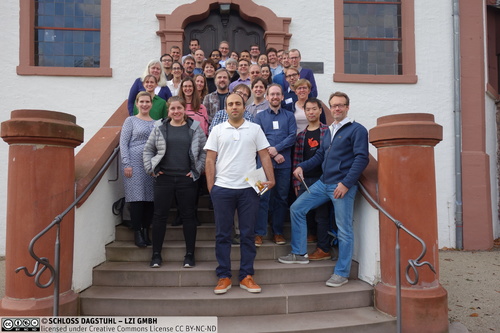
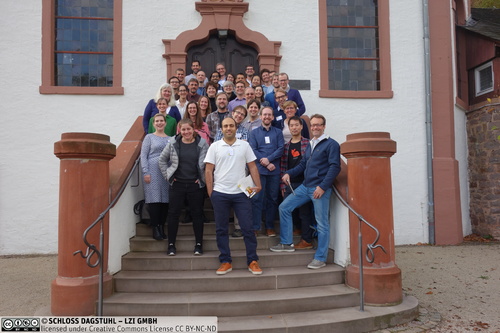
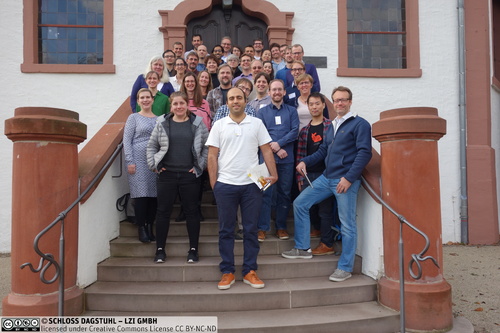
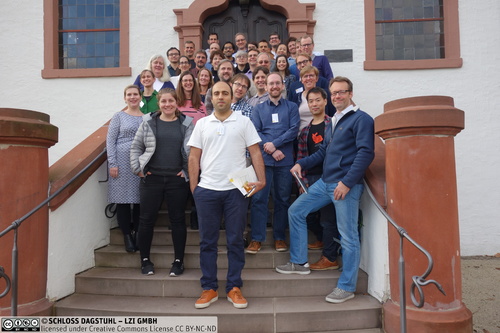
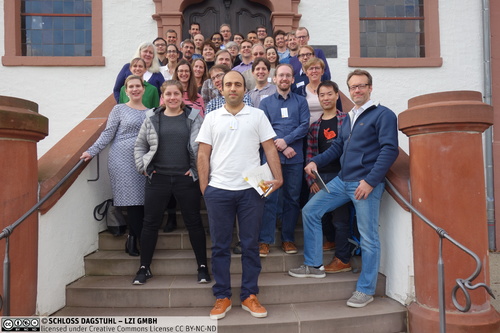
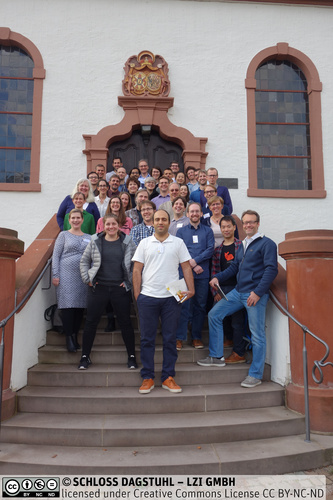
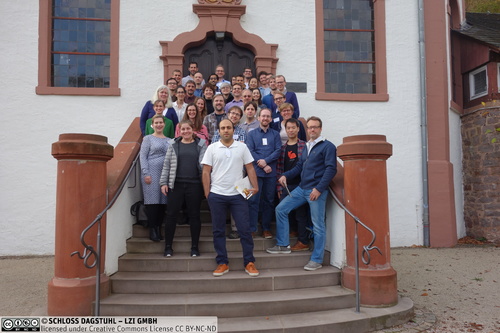
 Creative Commons BY 3.0 DE
Creative Commons BY 3.0 DE
